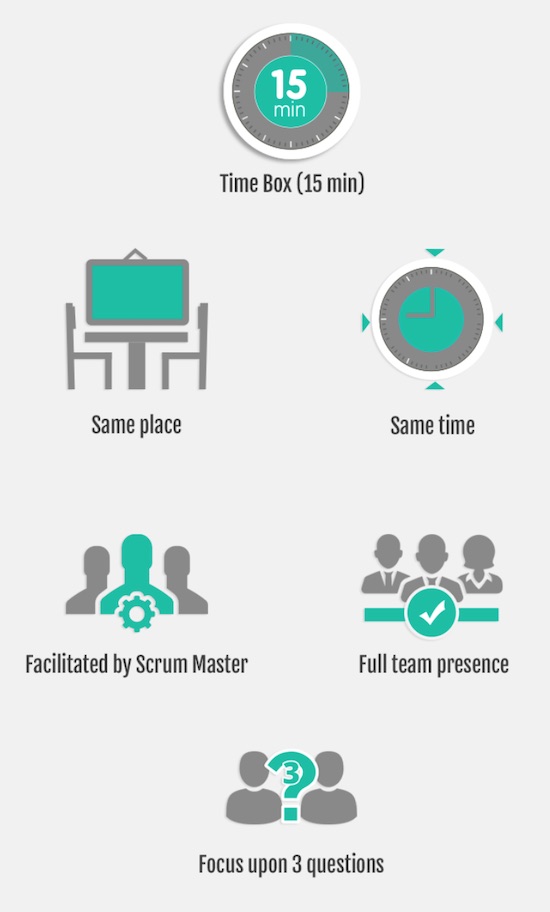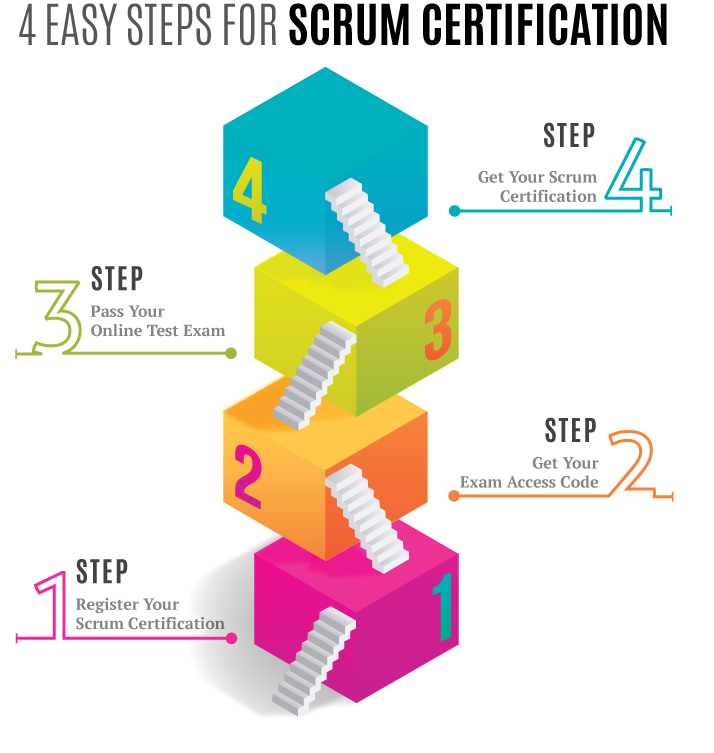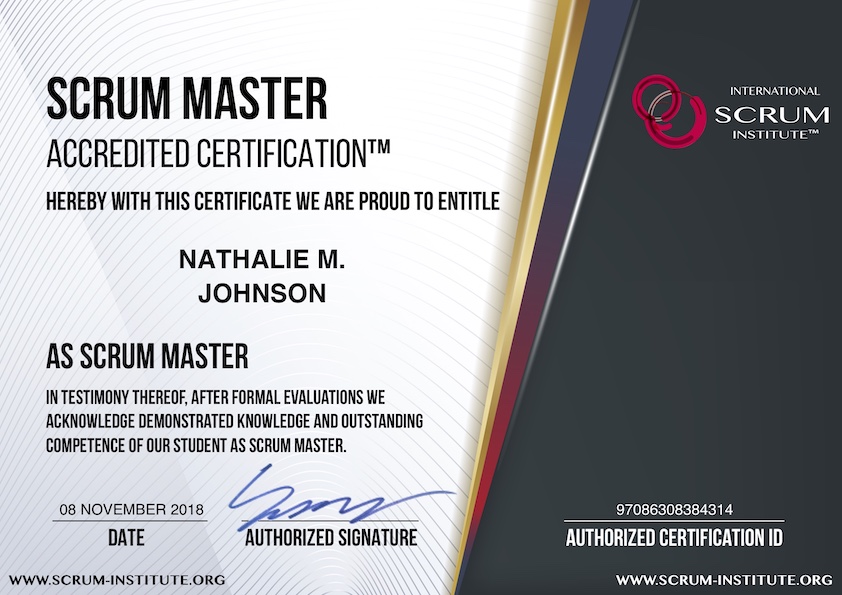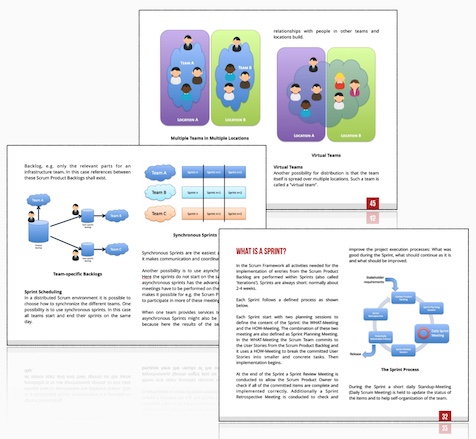What Is A Daily Scrum/Stand-Up Meeting? This Might Surprise You!
The Daily Scrum Meeting is a maximum of 15
minutes meeting. These meetings take place
every working at the same time in the same
place.
It's best to conduct Daily Scrum Meetings with
direct access to the Sprint Backlog and Sprint
Burndown Chart. So the Scrum Team can direct
the Daily Scrum Meeting based on the facts
and progress which are visible to everyone in
the team.
Daily Scrum Meeting aims to support the self-organization
of the Scrum Team and identify impediments systematically.
All members of the Scrum Team, the Scrum
Master and the Scrum Product Owner need to
join Daily Scrums. Other stakeholders can also
join these meetings, but only as a view-only
audience.
Daily Scrum Meetings are structured in the
following way. Every member of the Scrum Team
answers three questions.
- Daily Scrum Meeting - Question #1:
What activities have I performed since the last
Daily Scrum Meeting?
- Daily Scrum Meeting - Question #2:
What activities am I planning to perform until
the next Daily Scrum Meeting? What is my
action plan?
- Daily Scrum Meeting - Question #3:
Did I encounter or am I expecting any
impediment which may slow down or block the
progress of my work?
The Scrum Master has to moderate Daily Scrum Meetings.
She needs to ensure disciplined and fast-pacing
progress so that all team members can answer
these three questions in at most 15 minutes.
The goal of Daily Scrum Meetings does not
include to give time-consuming decisions or
solve problems.
On the other hand, no issues or concerns from
any Scrum Team member should be ignored or
undermined due to the time constraint of the
Daily Scrum Meeting. Concerns associated with
specific user stories must be clearly articulated,
discussed, and resolved after the meeting with
the Scrum Team members related to these user
stories.
To align on decisions and solve problems, the
Scrum team can organize separate on demand
basis meetings. These separate meetings
to focus on decisions or issues take usually
place subsequently after Daily Scrum Meetings.
The Scrum Master documents the identified
impediments and its dates in a separate log, flip
chart or report which is accessible to the team.
We find it very beneficial to quickly update the
status of all known impediments at the very end
of Daily Scrum Meetings.

Share It With Your Colleagues and Friends to Help Them Learn:
What Is A Daily Scrum/Stand-Up Meeting? This Might Surprise You!
|
|

|

|

|

|
|
 SCRUM INSTITUTE™
SCRUM INSTITUTE™






